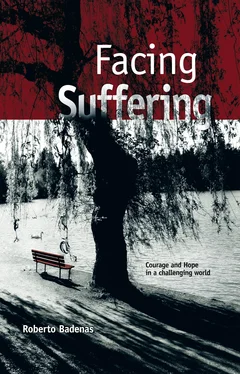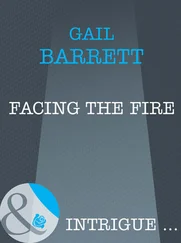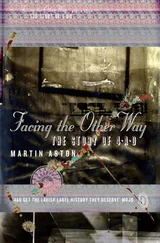Anxiety, stress, and depression
A classic example of how difficult it is to separate pain from suffering is provided by anxiety, stress, and depression. According to statistical estimates, in the year 2000, there were already hundreds of millions of individuals suffering from depression, two times the number in 1950, mostly in the West. In 2009, between 7% and 10% of the world’s population suffered from some form of depression, mostly in the countries with a Western lifestyle.8 The causes behind this growing problem are very complex, as its physiological components are difficult to separate from its psychological factors, and include genetic predisposition, lifestyle, the impact of environment, family tensions, and personal problems.
According to experts, stress and loneliness are two of the main causal factors of depression. Stress comes from fear and hurry, from emotional overload at work, from worry about personal problems, from pressure to do more without ever knowing how much more. Loneliness, meanwhile, hurts us by a lack of emotional support, a lack of affection, a lack of communication with others, the inability to count on someone with who can provide us with a less subjective frame of reference than our own on the reality in which we live. And it also comes from the assumption that all of the above makes us feel alone, even when we are not alone in reality. Every day there are more people who have unmet emotional needs or a weakening self-esteem. Many depressed individuals suffer from a lack of recognition or appreciation. They don’t need fame, fortune, or medals to be happy. They just need someone to recognize their achievements, help them accept their reality, soothe their concerns about their burdens, and help them find inner peace. Stress and loneliness alter personality, affect self-perception, and disrupt serenity in the face of reality, creating unnecessary anxiety and distress.9
The complexity of this condition is described by its victims in distressing terms: “I cannot forget the horror of depression, the intolerable pain, the loneliness, the isolation, the despair that excludes all hope […]. Nothingness was the only escape from pain.”10 So its treatment requires professional medical care. When depression is addressed in only psychological or spiritual terms, we fall in the trap of requiring faith or motivation when these are impossible to create for oneself. It is of little use to treat the symptoms without addressing the causes of the ailment. It is cruel to try to impose worship on a bleeding heart.11
The many causes of pain
At this point in our reflections, we realize that there is no easy answer to the question “why do we suffer?”, because we really suffer for many and varied reasons. In summary, we can list them in the following way :
1 We suffer, chiefly and obviously, because we are human. Our physical reality is sensitive, vulnerable, and mortal. We get wounded, get sick, and grow old. In this sense, our suffering is “natural,” at least under our current circumstances.
2 We also suffer because we are free, able to make painful choices and take risks that may cause pain.
3 And we suffer, in large part, because we are intelligent, conscious of our painful reality, and very capable of using our intelligence to cause suffering.
4 There is no doubt, therefore, that we suffer all too often because our own wickedness is capable of causing a lot of harm, individually and collectively.
5 Paradoxically, we also suffer because we don’t always act with the intelligence that we should. Many of our problems come from the senseless mistakes that we make involving ourselves and others.
6 We also suffer, logically, because we live in a society, and we are often victims of the decisions made by others. Someone affected by secondhand smoke can suffer serious harm because to the irresponsibility of others.
7 We also suffer, finally, because of sympathy or compassion for the pain of others. This means that a large part of our suffering is not physical but can be emotional.
But human beings are not satisfied with technical answers, or even scientific ones, to the question of suffering. We also need existential and metaphysical answers. Besides asking ourselves how we can reduce or eliminate pain, we also ask what meaning suffering has when all our efforts to diminish it or avoid it reach their limits. We have all felt the need, confronted by our own pain or that of our loved ones, to know what to do or say. When our efforts fail, we are faced with our own powerlessness, and what we don’t want to happen, happens.
There remains therefore the need to look beyond one’s own suffering, to find its root causes; adopting, meanwhile, the maxim of the Ragmen of Emmaus: “fighting against suffering and eliminating its causes.”12 Having the clarity and courage necessary to fight or endure, depending on the situation. But knowing that pain will sometimes be inevitable, sometimes long and painful, and sometimes end a life.
1. Quoted by Philip Yancey in When We Hurt. Prayer, Preparation and Hope for Life’s Pain, Grand Rapids: Zondervan, 2006, p. 21.
2. Ruth Frikart, La mort en bandoulière [Death on my Shoulder], Paris: Éditions Société des Écrivains, 2005, p. 161.
3. This basic principle of natural ethics is in the foundations of the Ten Commandments, the Universal Declaration of Human Rights, and the health protection assured by modern constitutions, or the Kyoto Declaration. So, it goes against the precepts of bioethics, for example, to deny analgesics for fear that the patient maybe become addicted, and it is the responsibility of the health personnel to provide adequate medication so that the patient suffers as little as possible. For a classical philosophy of pain management, see “Working together to relieve your pain” in Patient Education (National Institutes of Health Clinical Center) www.cc.nih.gov/ccc/patient_e
4. Cf. Chris J. Main & Chris C. Spanswick, Pain Management : An Interdisciplinary Approach, Churchill Livingstone: Harcourt, 2000.
5. Paul Tournier, Guilt and Grace, New York: Harper & Collins, 1982.
6. For the Stoics the ultimate virtue is ataraxia (“imperviousness to perturbations”). They taught that embracing reality as it is would lead to happiness, for our thoughts cause our joy and suffering. By having a positive attitude we would enjoy our life. By “rejecting reality” and thinking about injustice, we will make ourselves miserable (Epictetus, Manuel, chapter 8. Cf. J. W. Gray, “Stoic % Buddhist Arguments Against Intrinsic Values,” in ethicalrealism.wordpress.com/2010/03/23).
7. Extracted from “Setting the Wheel of Dharma in Motion” (SN 56:11). Dharma is a Buddhist method of protecting ourselves from dukkha, a term commonly translated “suffering” or “pain”. This definition of dukkha is identified as the first of “The Four Noble Truths”. Cf. The Buddhist Society, 1001 Pearls of Buddhist Wisdom: Insights on Truth, Peace, and Enlightenment (selected by The Buddhist Society,), London: Duncan Baird Publishers, 2006, p. 7; Peter Harvey, Buddhism, Cambridge University Press, 1998/2006, p. 198.
8. See www.depressionhelpspot.com/depression_statistics.html (cf. David B. Morris, The culture of Pain, University of California Press, 1993).
9. Lori A. Leyden-Rubenstein, The Stress Management Handbook: Strategies for Health and Inner Peace, Keats Publishing, 1998.
10. R. Dunn, Quand le ciel est silencieux [When Heaven is Silent], Marne-la-Vallée (France): Farel, 2003, pp. 144-145.
11. John White, The Masks of Melancholy, Westmont (Illinois, USA.): Intervarsity Press, 1982, p. 77.
12. Motto for the Ragpickers of Emmaus Association: “In the face of human suffering, try, as best you can, not only to alleviate it as best you can, but above all eliminate its causes. Try, as best you can, not only to eliminate the causes of the evil, but to alleviate, as best you can, the suffering that it causes.” (www.emaus.fr).
Читать дальше












